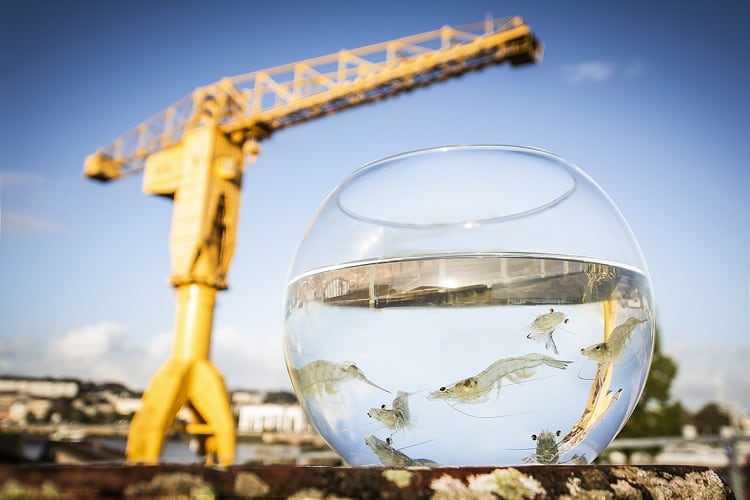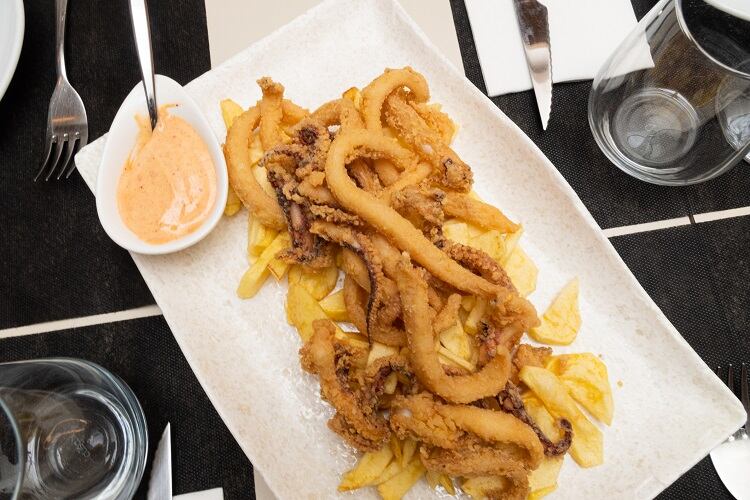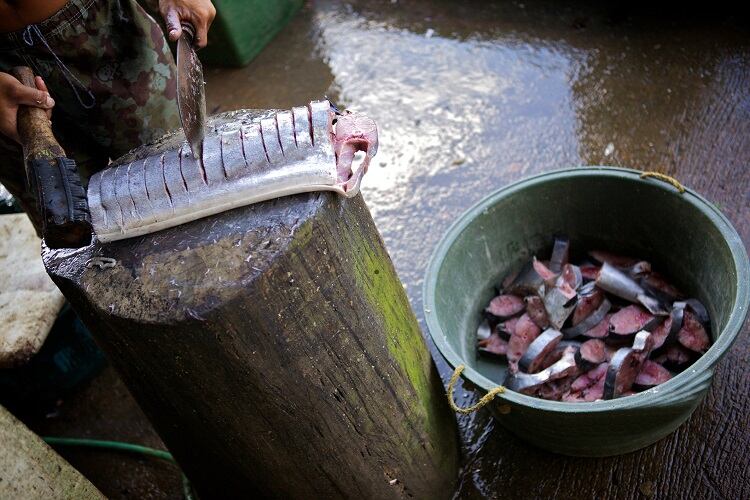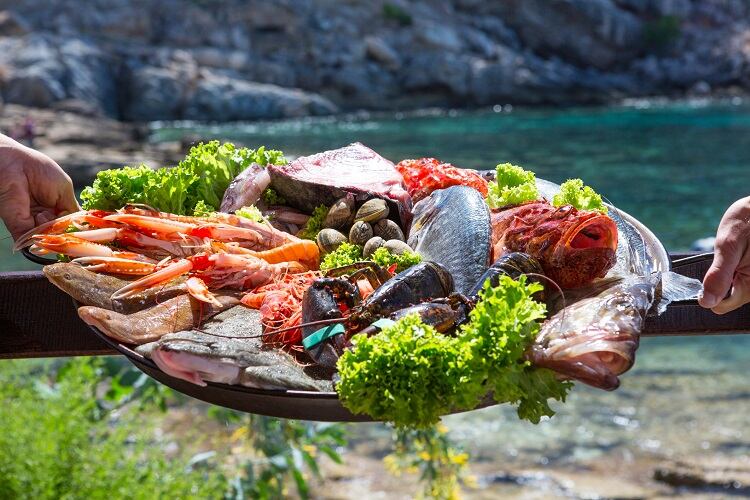Every year, 80,000 tons of frozen shrimp are imported into France, and 290,000 tons into Europe.
French start-up Lisaqua is on a mission to disrupt this established supply chain with local production of raw, ‘ultra fresh’ shrimp. The company plans to produce 10,000 tons of shrimp annually by 2030 across France and Europe.
What is ‘permaquaculture’?
Lisaqua was established in 2018 by three founders: a marine biologist, an engineer, and an entrepreneur. The latter, Gabriel Boneu, told FoodNavigator the start-up aims to revolutionise aquaculture with its proprietary low environmental impact production system.
“Our system creates a rupture with conventional farming,” he explained. “We are going beyond the current existing indoor shrimp farming technologies.”
Since 2019, the company has been marketing its fresh, local, and ‘environmentally friendly’ shrimp in France, which it boasts is ‘triple zero’ guaranteed: zero antibiotics, zero kilometres travelled, and zero polluting discharge.
To do this, Lisaqua developed a circular model it has coined ‘permaquaculture’. “We are designing biofiltration modules (invertebrates and microorganisms) in order to valorise all the effluents from the shrimp tanks and convert them into high value species,” said Boneu. “This is what we call ‘permaquaculture’.”
The microorganisms are made up of ‘beneficial bacteria’, microalgae, and zooplanktons. Lisaqua was tight-lipped about its marine invertebrates, citing confidentiality concerns.
Recycling filtered water
Compared to conventional shrimp farming, Lisaqua says it uses 20% less food and saves 99% water – thanks to its ‘recirculated’ system.
Essentially, this recirculated indoor aquaculture system – where the shrimp, microorganisms and marine invertebrates live – filters and re-uses the same water.
“Instead of pumping large amounts of water and releasing polluted water into the environment, we keep the same water for a long time and only compensate evaporation,” the CEO explained.
“This allows us to set up our farm close to major cities, as we do not need an access to the sea.”
The system also leverages deep tech. “We are developing a ‘digital twin’ for our system, including a water predictive model,” we were told.
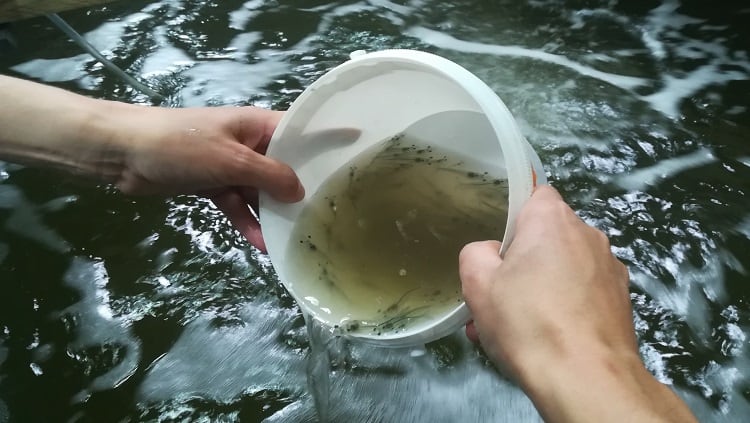
Further, Lisaqua has set up research partnership with French public university laboratories.
Antibiotic-free shrimp production
The start-up boasts 100% antibiotic-free shrimp production. How does it achieve this? By avoiding contamination, said Boneu.
“Shrimp pathogens are located in the sea, in tropical areas. By setting up our farm in France, which is a shrimp pathogen-free zone, we reduce the risk of being infected by shrimp pathogen.
“Moreover, our current farm is located 50km away from the sea in Nantes, and our system can be implemented anywhere. As we are using a recirculating system, our water consumption is very low: we do not use seawater, but recreate a natural environment from clean water, using the right salt and microorganisms.
“This allows us to use non-contaminated water and avoid pathogens in our farm.”
Next steps
Lisaqua is finalising construction of its facility, which it says will be the first land-based shrimp farm in France. “Our new farm will allow us to produce 10 tons per year, which will be directly sold to local fishmongers, starting in a few months,” the CEO explained.
The start-up recently raised €2.6m in funding from Le Gouessant Agricultural Cooperative, Litto Invest, and private investors, to help it get there.
This brings total investment up to €4.9m, following €2.3m of non-dilutive funding from Bpifrance, as well as Crédit Maritime, and CIC Ouest banks.
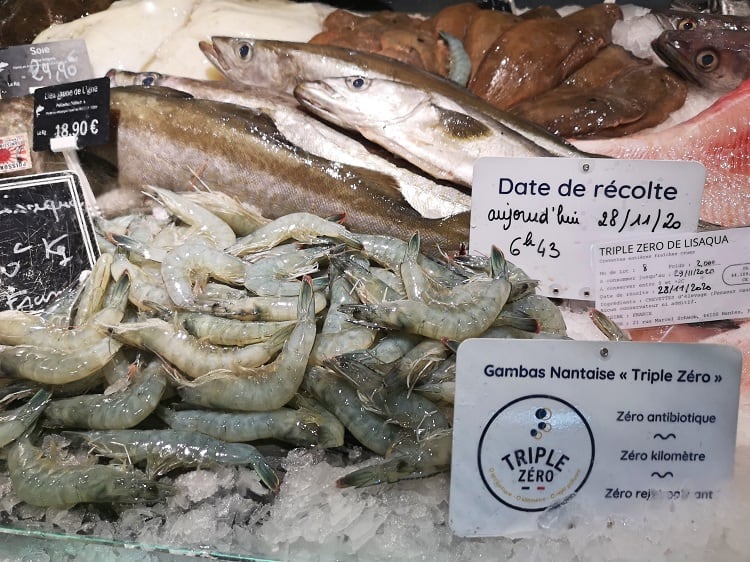
The next step, according to Boneu, is to scale Lisaqua’s system and set up a network of farms with a capacity of 100 to 500 tons per year. “Once we reach this scale, we will distribute our shrimp via wholesalers and supermarket chains.
“However, each farm will serve its local market and the main cities in the area in order to sell them extra fresh, avoid long transportation, freezing, or the use of…additives.”


